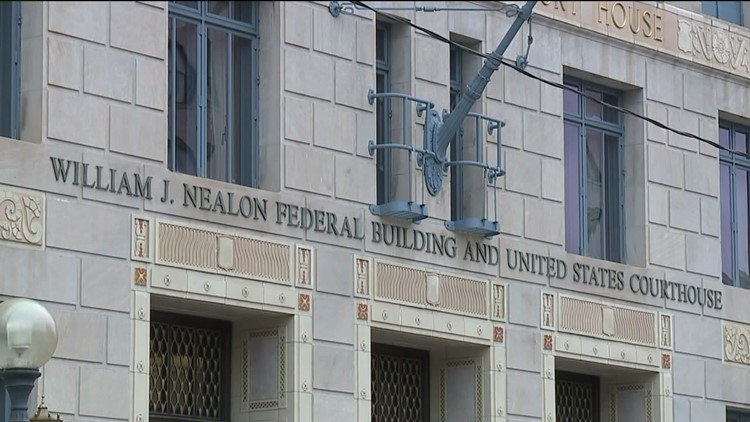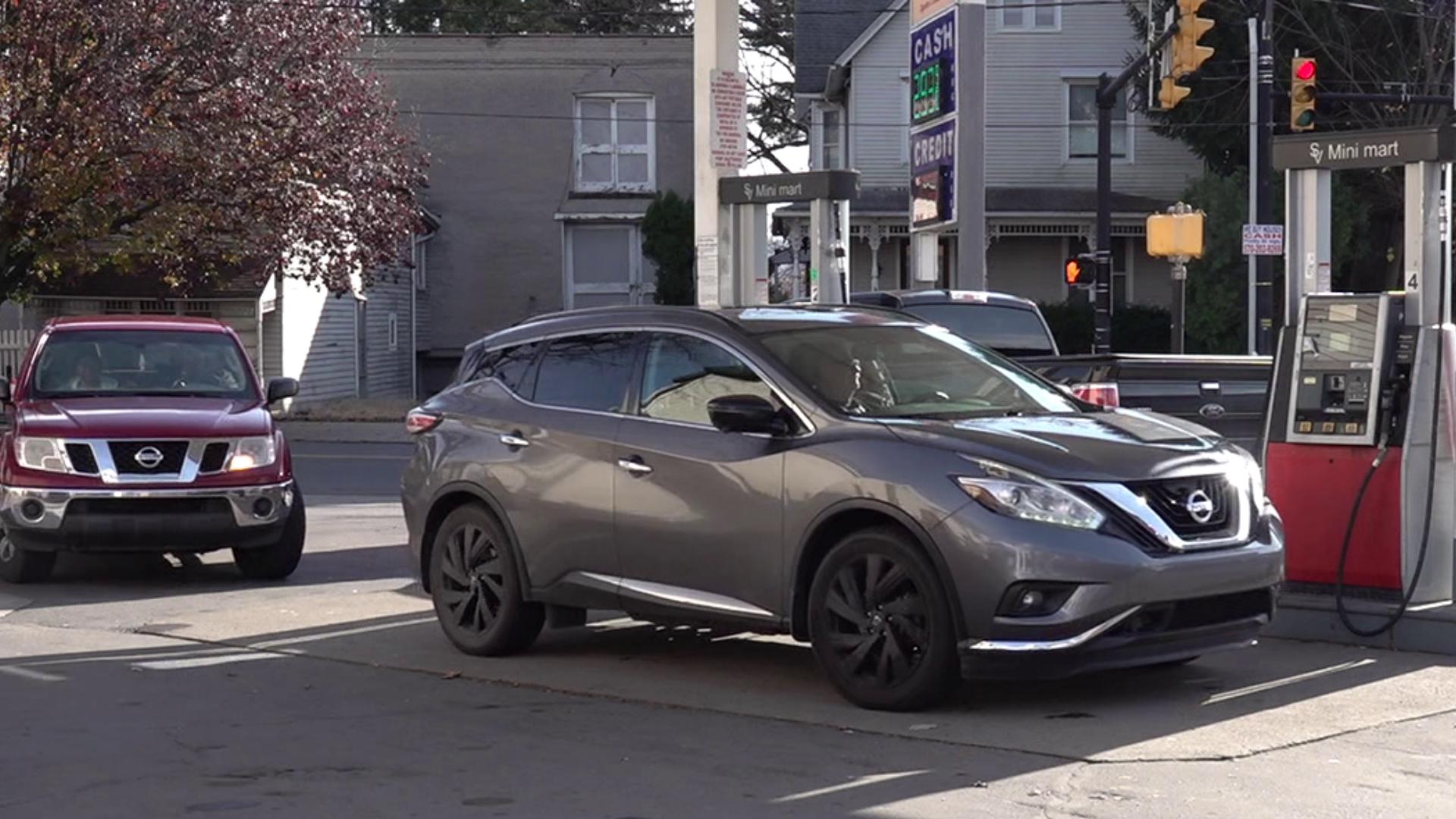SCRANTON, Pa. — A U.S. Department of Justice watchdog said David Freed, the former U.S. attorney for the Middle District of Pennsylvania, misled the public regarding the handful of ballots found in a Luzerne County dumpster weeks before the 2020 general election.
The Office of Inspector General, in a scathing 76-page report released Thursday, stopped short of concluding Freed and former Attorney General William Barr committed misconduct for their handling of a minor election investigation that ultimately resulted in no criminal charges. The report, however, found Freed violated several DOJ policies governing public statements.
The inspector general, Michael Horowitz, determined Freed’s public comments regarding nine discarded military mail-in ballots — mostly cast for then-President Donald J. Trump — and Freed’s release of a letter penned to county officials infused a criminal investigation with partisanship and “created a false impression” that the probe was more serious than authorities knew it to be. The review also found that Freed spoke on the case publicly despite knowing he almost certainly would not pursue a criminal prosecution.
“Nearly every DOJ lawyer we interviewed— both career employees and Trump Administration political appointees—emphasized how ‘unusual’ it would be for the Department to issue a public statement containing details about an ongoing criminal investigation, particularly before any charges are filed,” the OIG report stated. “As one then U.S. Attorney told us: ‘If [we] don’t have a charge, we don’t say anything about an investigation; we just don’t do that.’”
Attempts to reach Freed were unsuccessful. The U.S. Attorney’s Office for the Middle District of Pennsylvania, now helmed by U.S. Attorney Gerard M. Karam, declined to comment.
The report also concluded that Barr, who briefed Trump on the discarded ballots, did not violate DOJ rules on White House communications because official policy allows the attorney general discretion to determine what information can be shared with the president. Clarifying that policy was one of several recommendations Horowitz’s report made.
“There was no evidence of fraud in Luzerne County elections, neither at the time of the incident nor at any point thereafter,” Luzerne County Manager Romilda P. Crocamo said. “Luzerne County remains dedicated to maintaining the trust and confidence of the public in our electoral system. We are committed to working closely with the appropriate authorities to further enhance security measures and prevent such incidents from occurring in the future.”
The ballot flap began Sept. 18, 2020, when a detective in the Luzerne County district attorney’s office passed along to the FBI a report of mail-in ballots found discarded in a dumpster.
The suspect — a seasonal employee of the Luzerne County Bureau of Elections — believed nine discarded ballots were fraudulent and threw them in the garbage.
Almost from the start, authorities doubted they would bring a criminal case because their suspect was mentally ill, and prosecutors lacked proof of criminal intent.
The FBI agents who interviewed him noted he was “100% disabled” due to a car accident that injured his brain.
Still, the OIG report states, Freed viewed the event as an opportunity for Barr to talk about election fraud, a topic Trump frequently uses to this day to falsely claim the 2020 election had been stolen in favor of President Joseph R. Biden.
In conversations early on with colleagues, Freed tried to manage expectations.
Freed “didn’t want something communicated to the Attorney General that this is some huge case” just to “not have it pan out that way,” one witness recounted in the OIG report.
Barr was interested. He and Freed spoke twice on the phone about the investigation. Freed told Horowitz’s office he provided Barr with “the basic facts” and noted the matter “didn’t appear…to be some sort of large-scale operation.”
“Keep on top of it,” Barr told Freed.
Former Luzerne County District Attorney Stefanie J. Salavantis, now a county judge, issued the first statement confirming the ballot investigation on Sept. 22, 2020. She told the OIG investigators she did so because she received media inquiries about the ballots and she worried that other county officials might discuss the investigation. Her statement, however, said very little.
Public interest soon intensified. Barr briefed Trump on Sept. 23, 2020, and Trump quickly told a radio program that “these ballots are a horror show.”
Barr wanted updates, but Freed reiterated there likely was no criminal case to be made. Their discussion turned to the possibility of a public statement. Barr, Freed told OIG, wanted a message about “the potential for voter fraud and ballot fraud and for people to be cognizant of the importance of where, when and how to cast their votes.”
“It was the idea of — after speaking with the Attorney General — the idea of getting the information out there,” Freed said, according to the report.
Politics, he told the OIG, played no role in the decision. That, however, was the perception others held because Freed’s statement included that the ballots had been for Trump.
Freed also made public a letter his office sent to the Luzerne County Bureau of Elections.
The Trump campaign wasted no time seizing the narrative.
“BREAKING: FBI finds that military mail-in ballots discarded in Pennsylvania,” a campaign spokesperson posted on social media. “Democrats are trying to steal the election.”
Corey Amundson, the chief of the Justice Department’s Public Integrity Section, told the OIG that the “wholly inappropriate” statement exacerbated a “highly charged” issue by making it seem like the DOJ was taking sides on a partisan issue.
When Amundson found out that there already had been a decision not to move forward with a criminal case, his disappointment in Freed’s actions “increased tenfold.”
Explaining to the OIG, Amundson said, “you’re leaving open the mistaken impression with the public that there has been criminal wrongdoing when, in fact, you know there has not been criminal wrongdoing.”
“And that to me — particularly in the charged environment we’re in, which is all the reasons behind the different policies we have and the reasons for these consultations — is dangerous and not what we’re about at the Department,” Amundson continued.
Freed replied to the OIG he did so because “it was more important for the information to be out there” so voters could decide whether to cast their ballots by mail or in person. People had a right to know what was happening, he said.
As for why Freed left out the fact that the case did not seem to involve serious criminal behavior, the former prosecutor replied to the OIG: “At that point, I didn’t know for sure, so I didn’t think it was important to include.”
The U.S. attorney’s office made the final decision against prosecution on Oct. 26, 2020, about one week before Election Day. Others in the Justice Department felt Freed should issue a second, follow-up news release announcing the decision and clearing up the “misimpression” of intentional misconduct.
But the office’s final statement announcing closure would not come until Jan. 15, 2021.
By that point, the Trump administration was ending, and Biden’s inauguration was approaching. Freed had recently resigned. Bruce Brandler, Freed’s first assistant, had been appointed acting U.S. attorney.
Brandler’s four-paragraph statement, issued in response to a reporter inquiring after an update, was to the point: no criminal charges will be filed for lack of criminal intent.
“You shouldn’t issue these statements,” Deputy Assistant Attorney General Kevin Driscoll told the OIG. “But if you issue a statement that turns out to be…way forward-leaning on an investigation that ends up not going anywhere, you have the duty to correct.”



